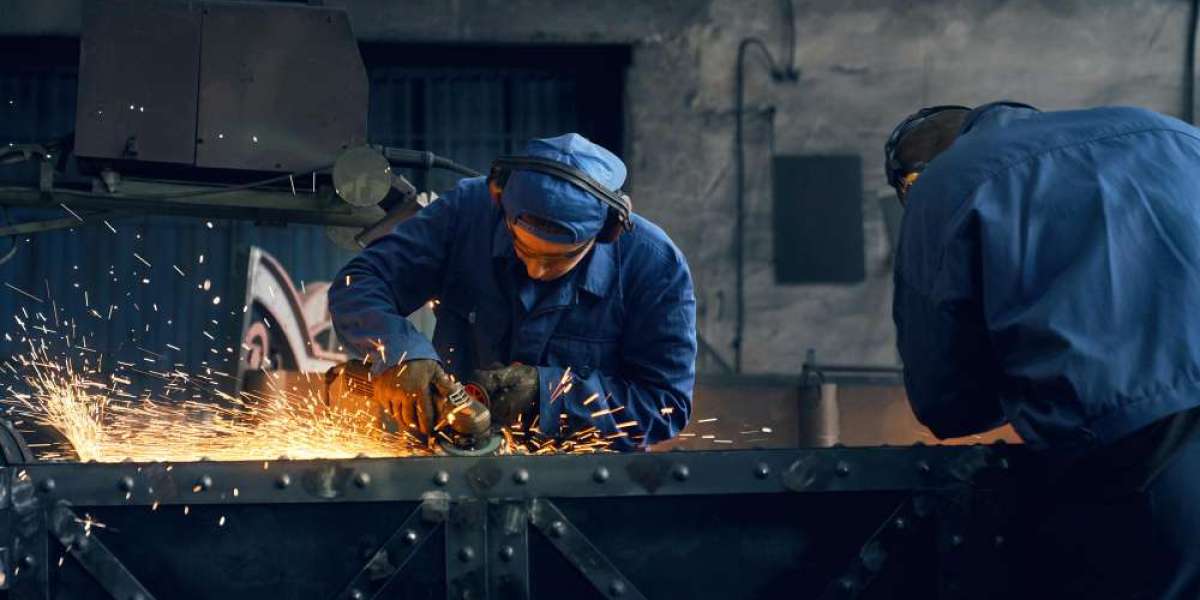Sheet metal fabrication is a craft that blends precision engineering with artistic creativity. From constructing intricate designs to building sturdy structures, the process requires a unique set of skills and, most importantly, the right tools.
Whether you're a seasoned professional or an enthusiastic DIYer, having a comprehensive toolkit is crucial for bringing your metalworking visions to life. In this article, we'll explore the essential tools every sheet metal fabricator needs to master the art of custom metal fabrication, so continue reading to know more.
- Sheet Metal Shears: Sheet metal shears are the go-to tool for achieving straight, accurate cuts in metal sheets of varying thicknesses. Available in manual, electric, and pneumatic variants, these versatile shears cater to a wide range of fabrication needs. Manual shears offer flexibility for smaller-scale projects, while electric and pneumatic shears provide the power and efficiency required for more extensive endeavors.
- Nibbler: A nibbler is an indispensable part of custom metal fabrication for intricate shapes and curved cuts. This specialized tool operates by nibbling away at metal sheets, quickly creating clean, precise contours. Whether working on automotive body panels or intricate artistic designs, a nibbler empowers you to unleash your creativity without compromising precision.
- Bench Shear: A bench shear is the tool of choice when cutting more significant pieces of sheet metal with precision and stability. These heavy-duty shears are mounted securely on a workbench and offer the strength and accuracy required for professional fabrication work. With a bench shear in your toolkit, you can tackle large-scale projects with confidence and efficiency.
- Metal Brake: Bending and shaping metal sheets require finesse and control, which is where a metal brake comes into play. Also known as a press brake, this essential tool enables fabricators to create precise bends and angles easily. A metal brake ensures consistency and accuracy in every fold, whether you're forming brackets, enclosures, or architectural components.
- Rolling Machine: For cylindrical or curved shapes, a rolling machine, also known as a slip roll or plate roller, is indispensable. By passing metal sheets through a series of rollers, this versatile tool allows fabricators to create smooth, uniform curves easily. From HVAC ductwork to custom exhaust systems, a rolling machine opens up a world of possibilities for sheet metal fabrication.
- Spot Welder: Joining metal sheets together seamlessly requires the precision and strength of a spot welder. This specialized progressive tool and die creates localized welds at specific points, ensuring robust connections without compromising the integrity of the metal. Whether assembling automotive panels or fabricating industrial enclosures, a spot welder is essential for achieving durable, reliable welds.
- Grinders and Sanders: Grinders and sanders are essential for a flawless finish on your sheet metal projects. Whether you're removing burrs, smoothing edges, or polishing surfaces, these versatile tools deliver the precision and consistency required for professional-quality results. With a range of abrasive options, you can customize your finish to suit your aesthetic preferences.
- Sheet Metal Forming Tools: From progressive tools and dies to stamping presses, sheet metal forming tools are indispensable for creating complex shapes and patterns. Whether embossing logos, forming flanges, or shaping intricate designs, these tools provide the precision and versatility required for custom metal fabrication projects of all scales.
- Measuring And Marking Tools: Accurate measurement and marking are the foundation of successful sheet metal fabrication. Rulers, calipers, and micrometers enable fabricators to determine precise dimensions and distances, while scribers, punches, and marking pens transfer measurements onto the metal surface with clarity and precision. By investing in high-quality measuring and marking tools, you can ensure the accuracy and consistency of your fabrication work.
10. Safety Equipment: Last but certainly not least, safety should always be a top priority in sheet metal fabrication. Gloves, safety glasses, ear protection, and dust masks protect against cuts, burns, noise, and airborne particles. Additionally, proper ventilation and workspace organization are crucial for minimizing hazards and creating a safe, productive working environment.









